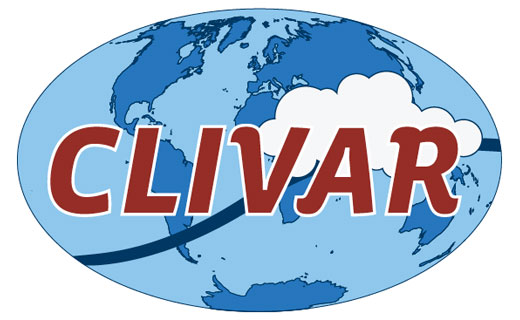CLIVAR Released the Second-Generation Science Plan and Implementation Strategy

This second-generation CLIVAR Science Plan builds on the important legacy of CLIVAR emerging since its inception in 1992 and redirects the CLIVAR goals and priorities for the coming decade after consultation with scientists and stakeholders throughout the climate community. Being one of four core projects of the WCRP, CLIVAR’s mission is to understand the dynamics, the interaction, and the predictability of the climate system with emphasis on ocean-atmosphere interactions. In the future CLIVAR will critically contribute to new challenges of WCRP climate science by covering the following overarching topics:
- Understanding the ocean’s role in climate variability, change, and transient sensitivity;
- Understanding the ocean’s role in shaping the hydrological cycle and distribution of precipitation at global and regional scales;
- Understanding the drivers of regional climate phenomena that provide predictability on different time scales;
- Provision of coordinated observations, analyses and predictions of variability and change in the Earth’s climate system;
- Detection, attribution and quantification of climate variability and change;
- Development and evaluation of climate simulations and predictive capabilities.
To this end, CLIVAR coordinates the international research in climate and ocean science, facilitating cooperation amongst national and multinational efforts, thereby enabling global climate research beyond regional and institutional capabilities of any individual nation. It facilitates observations, analysis, predictions and projections of variability and changes in the Earth’s climate system, enabling better understanding of climate variability and dynamics, predictability, and change, to the benefit of society and the environment in which we live. Through its Panels, Research Foci, workshops, summer schools and conferences, CLIVAR continues to bring together researchers from all over the world. In doing so, CLIVAR develops a strong, multidisciplinary international community of scientists at all stages of their career who coordinate efforts required to measure, simulate, and understand coupled ocean-atmosphere dynamics, and to identify processes responsible for climate variability, change and predictability.
CLIVAR’s new science and coordination activities speaks directly to new strategic WCRP goals and contributes to initiatives of all three WCRP sponsors, the World Meteorological Organization (WMO), the Intergovernmental Oceanographic Commission (IOC) of UNESCO, and the International Science Council (ISC).
Central to future climate science strategies needs to be the development of reliable regional climate change information to be provided on time scales from seasonal to centuries for the benefit of humanity and life on Earth. CLIVAR through its work contributes directly to reaching those goals. It is anticipated that in a 5 to 10 year timeframe much progress will be achieved in expanding theoretical process understanding, in improving the representation of important climate processes in numerical climate models, and in improving regional climate predictions and associated climate information. Such progress will build firmly on the global climate observing system and on the efforts required to improve and sustain it











Add new comment